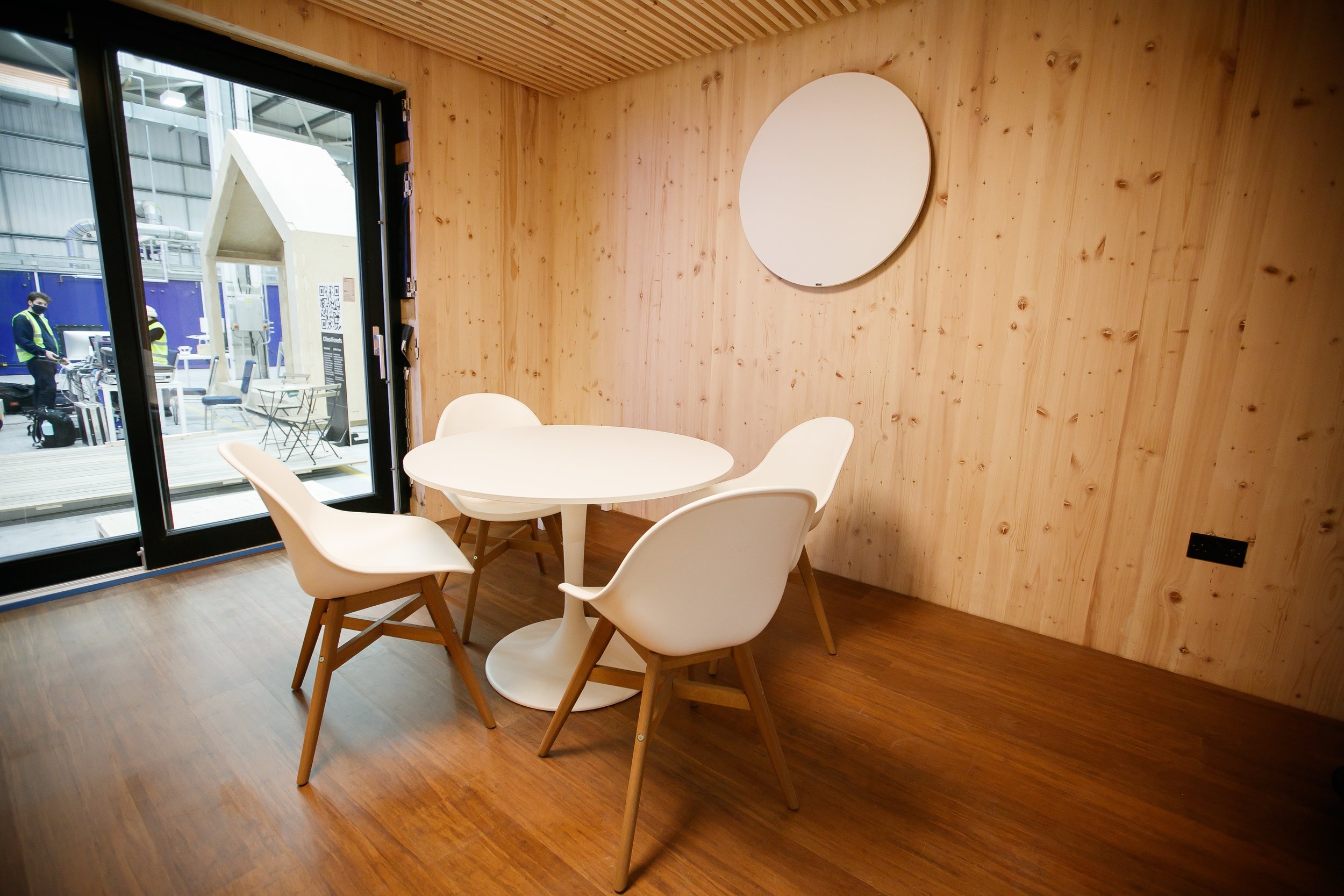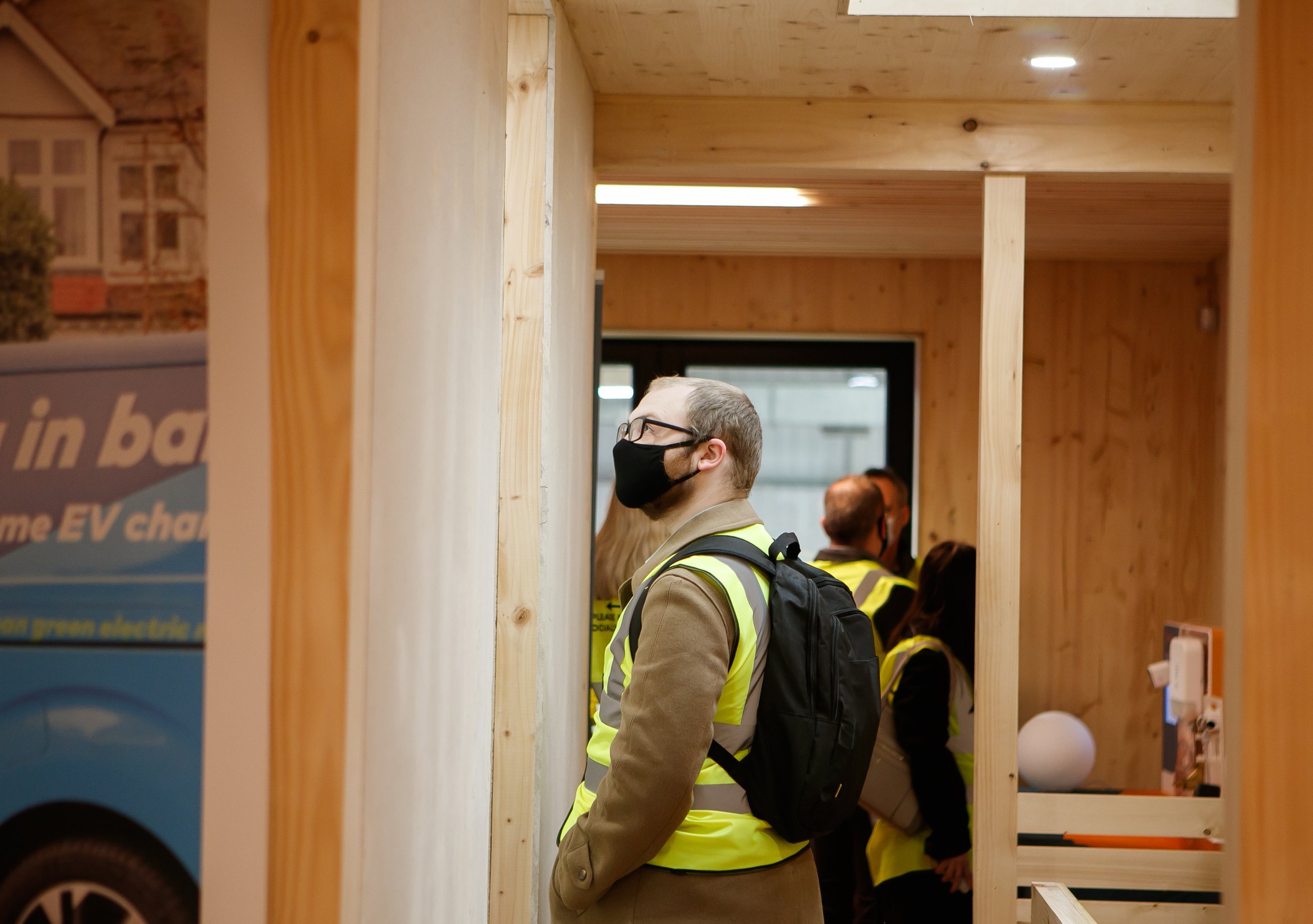
Despite a wide-spread global market shift in appetite for mass timber production, the UK currently has no commercial manufacturing facilities.
With increasing demand for these products based on benefits such as its long-term carbon storage, building fabric performance, overall life-cycle costs, reduced wastage, and offsite manufacturing quality assurance, there is an immediate requirement to deliver optimal mass timber solutions from a UK context.
The COP26 Homegrown Demonstrator sought to test and validate an approach to mass timber production in the UK.
The COP26 Homegrown Demonstrator project harnessed well-established international developments in construction technology and aligned them with societal and financial shifts in UK housing design, together with the move towards offsite manufacture of buildings, specifically focussing on housing.
The project validated homegrown mass timber products from mechanical, engineering, productivity, and cost perspectives for the UK market.

To interrogate the solutions, the COP26 Homegrown Demonstrator was fully digitised via the creation of a digital twin to capture all available information, as well as to stress-test supply chains, giving consideration to Design for Manufacture and Assembly (DfMA) and Disassembly (DfMA+D) requirements. This ensured mass customisation and standardisation, enabled full process automation, developed an integrated supply chain and took cognisance of the need to design and construct in accordance with Circular Economy principles.
The Innovate UK funding scope required two significant project outputs:
Delivery of a prototype for demonstration during COP26 in Glasgow
Economic impact via commercialisation of the developed products or systems





Project partners






